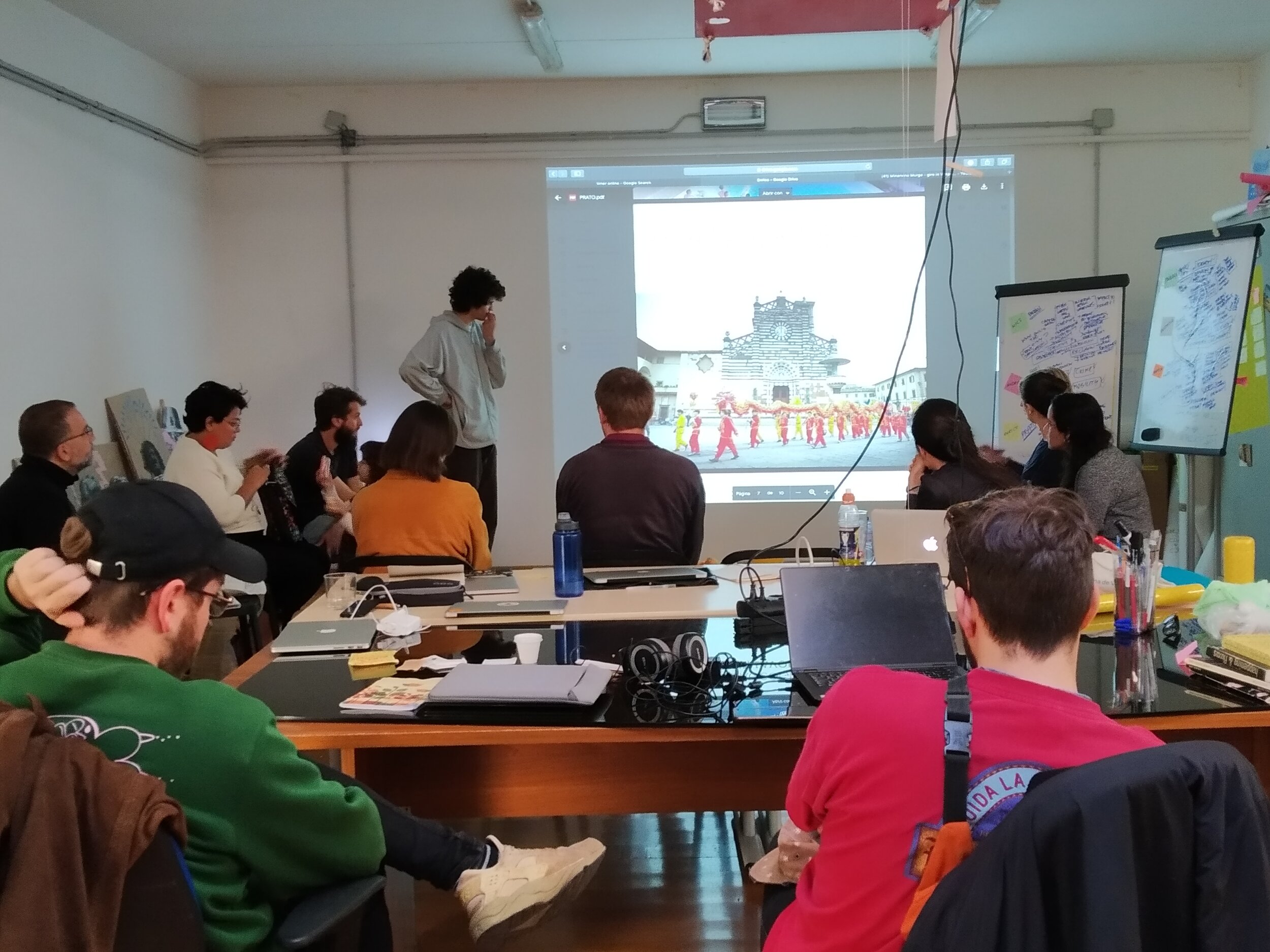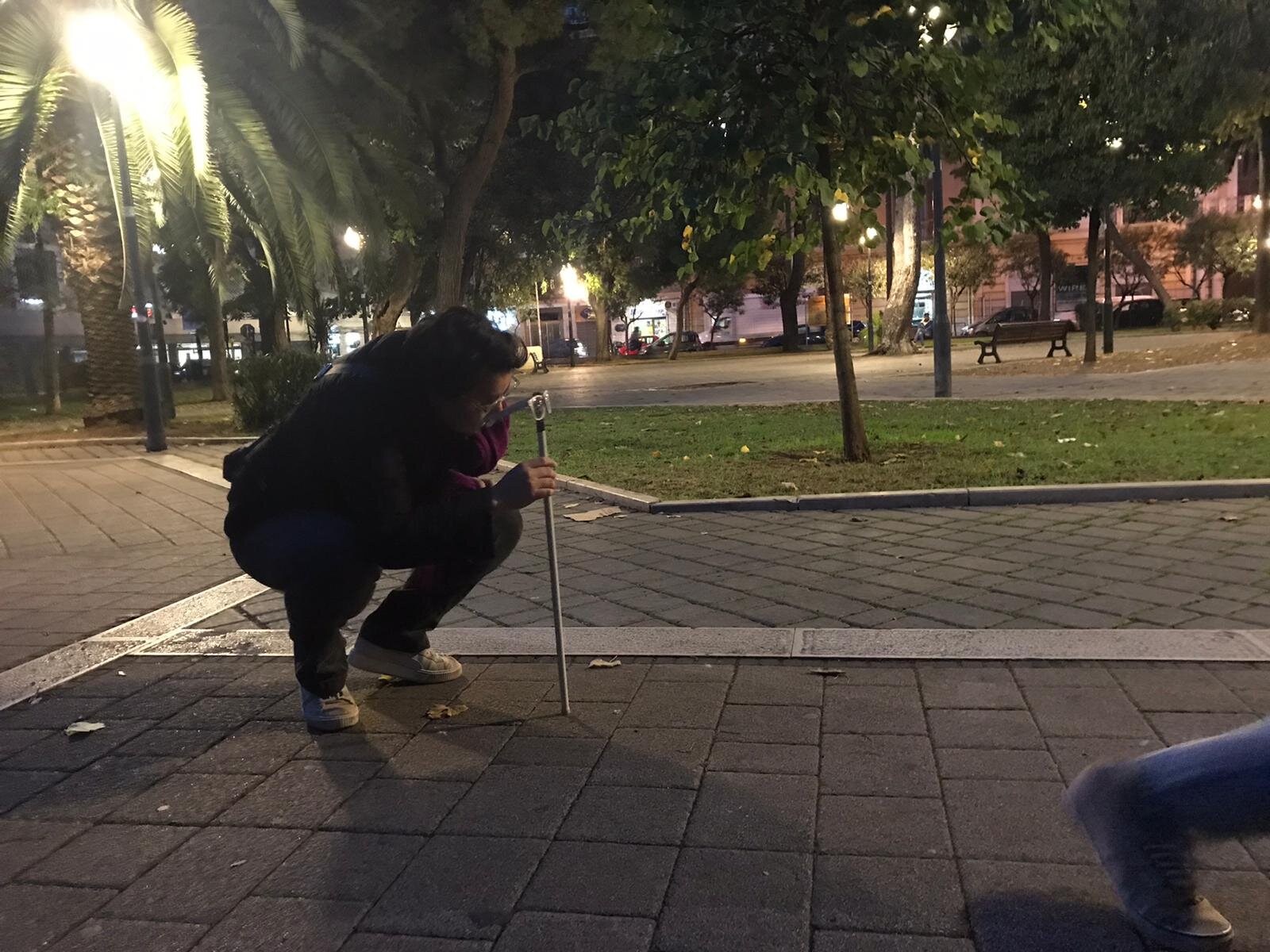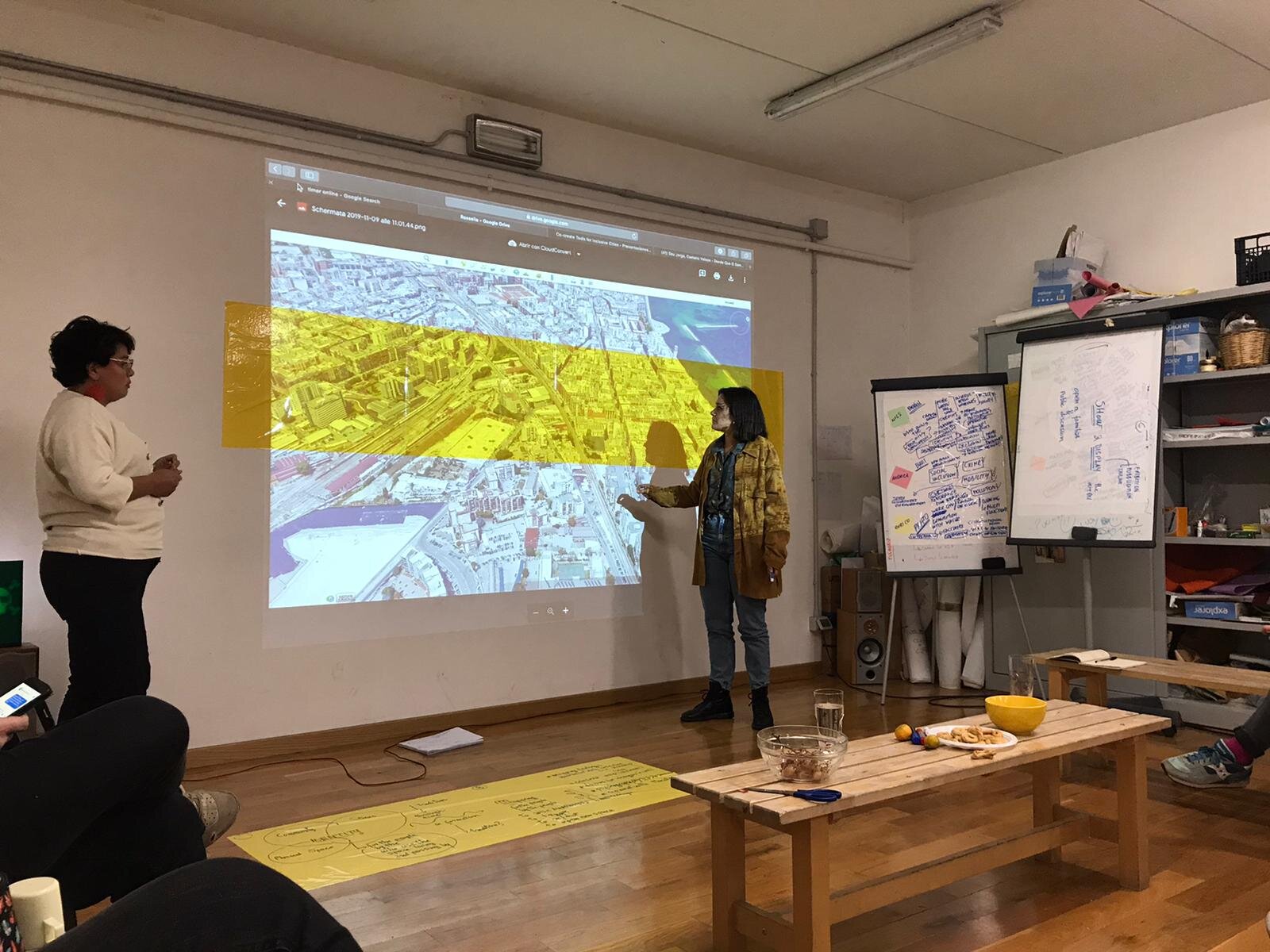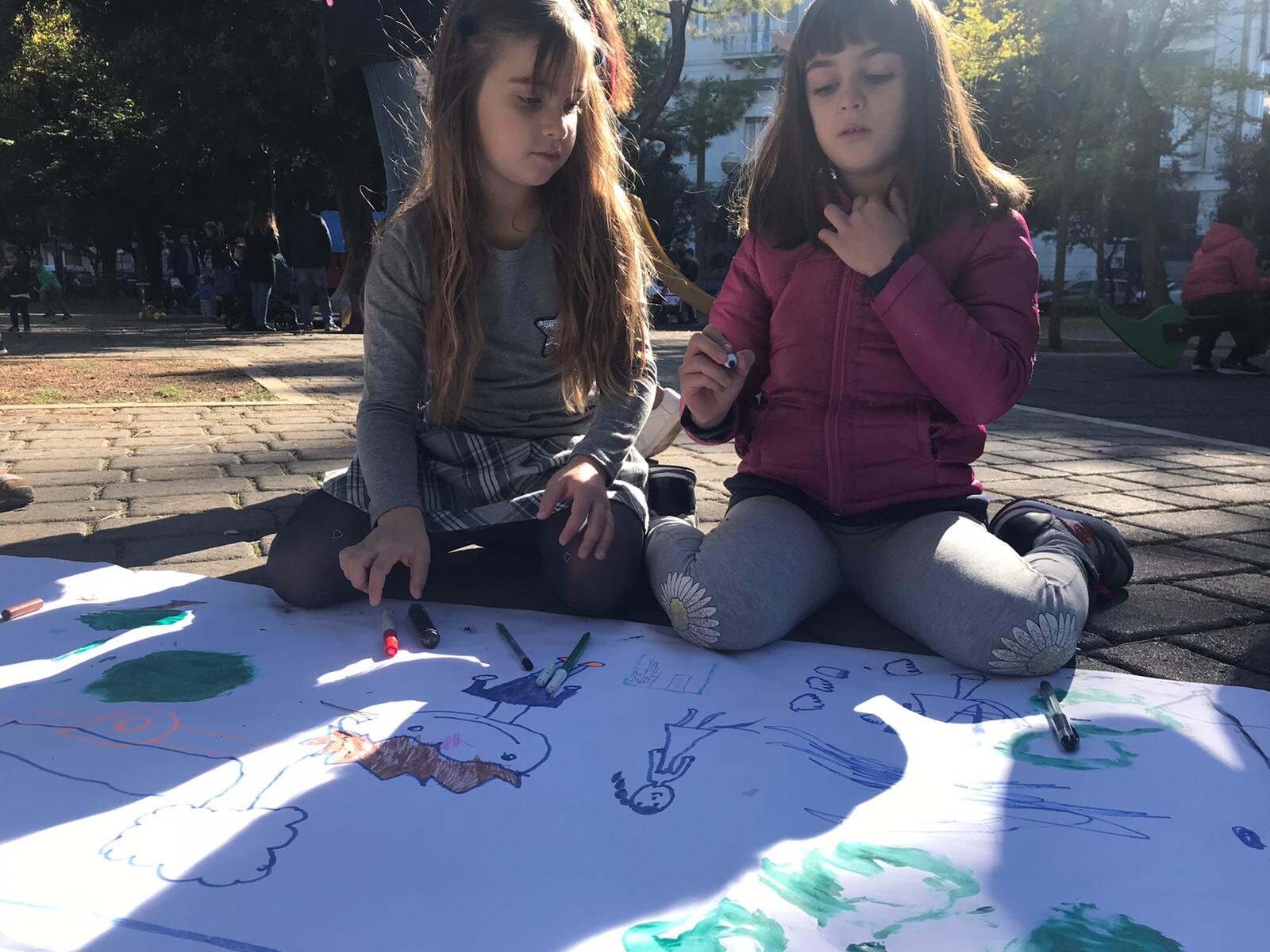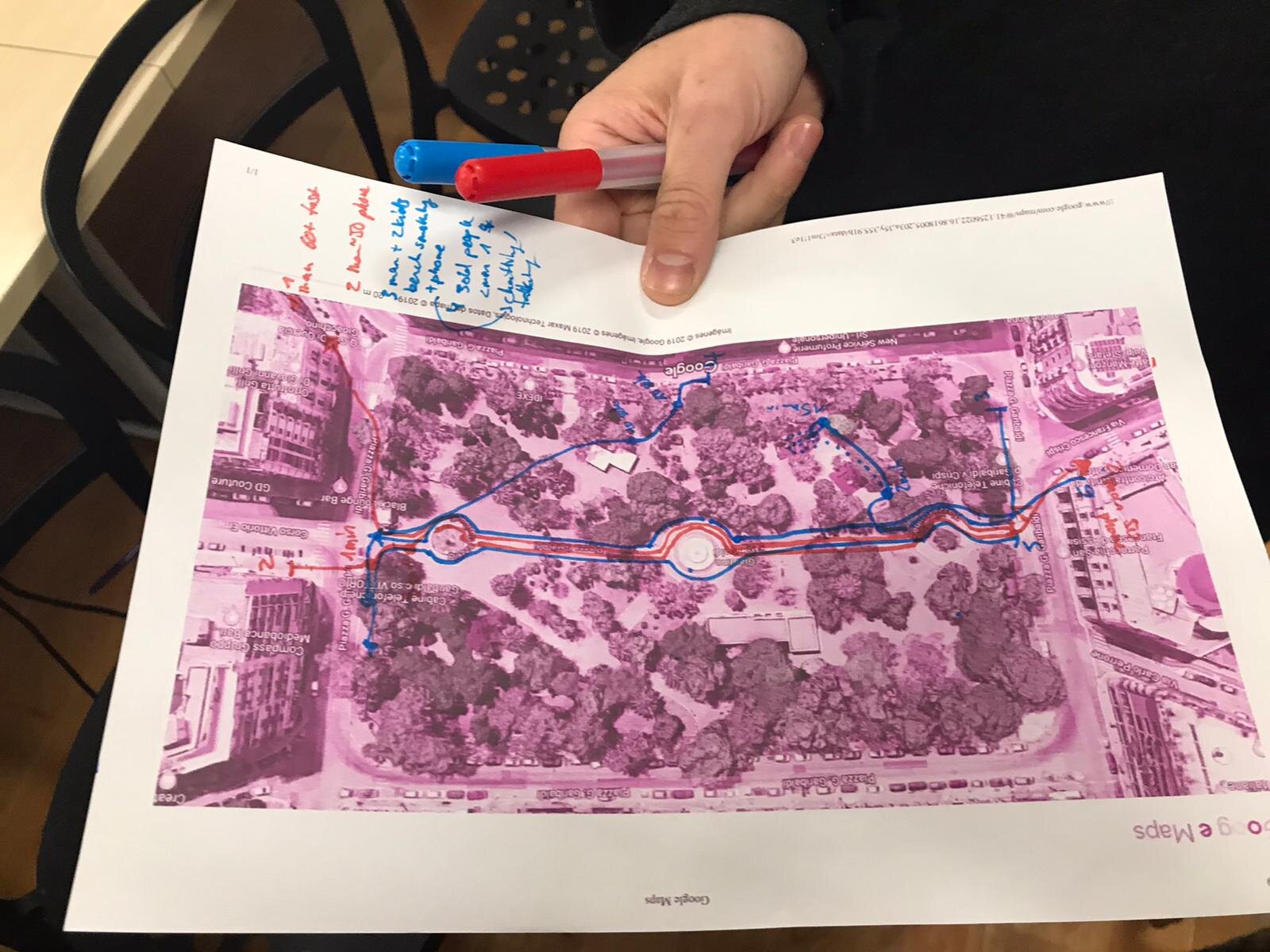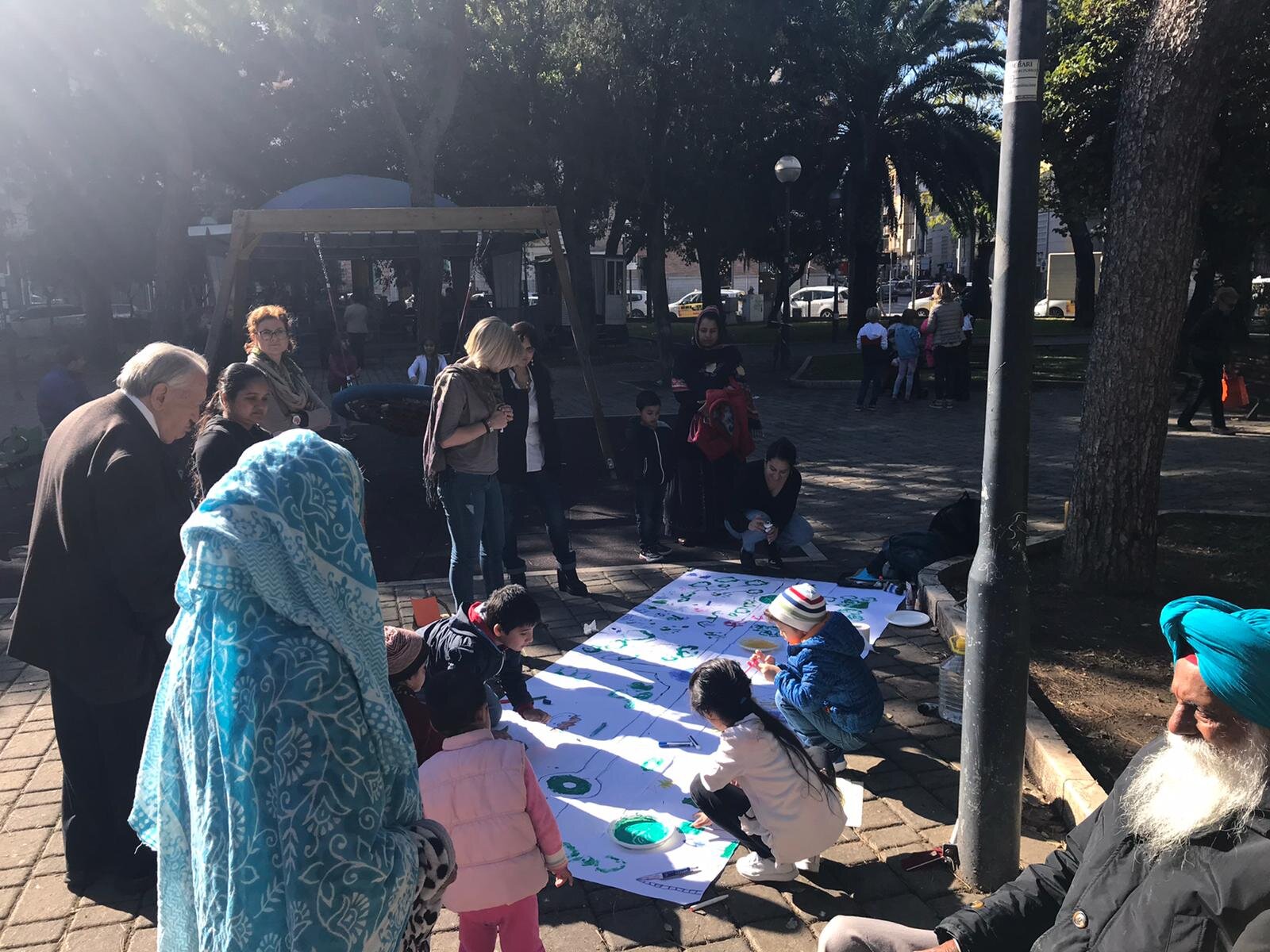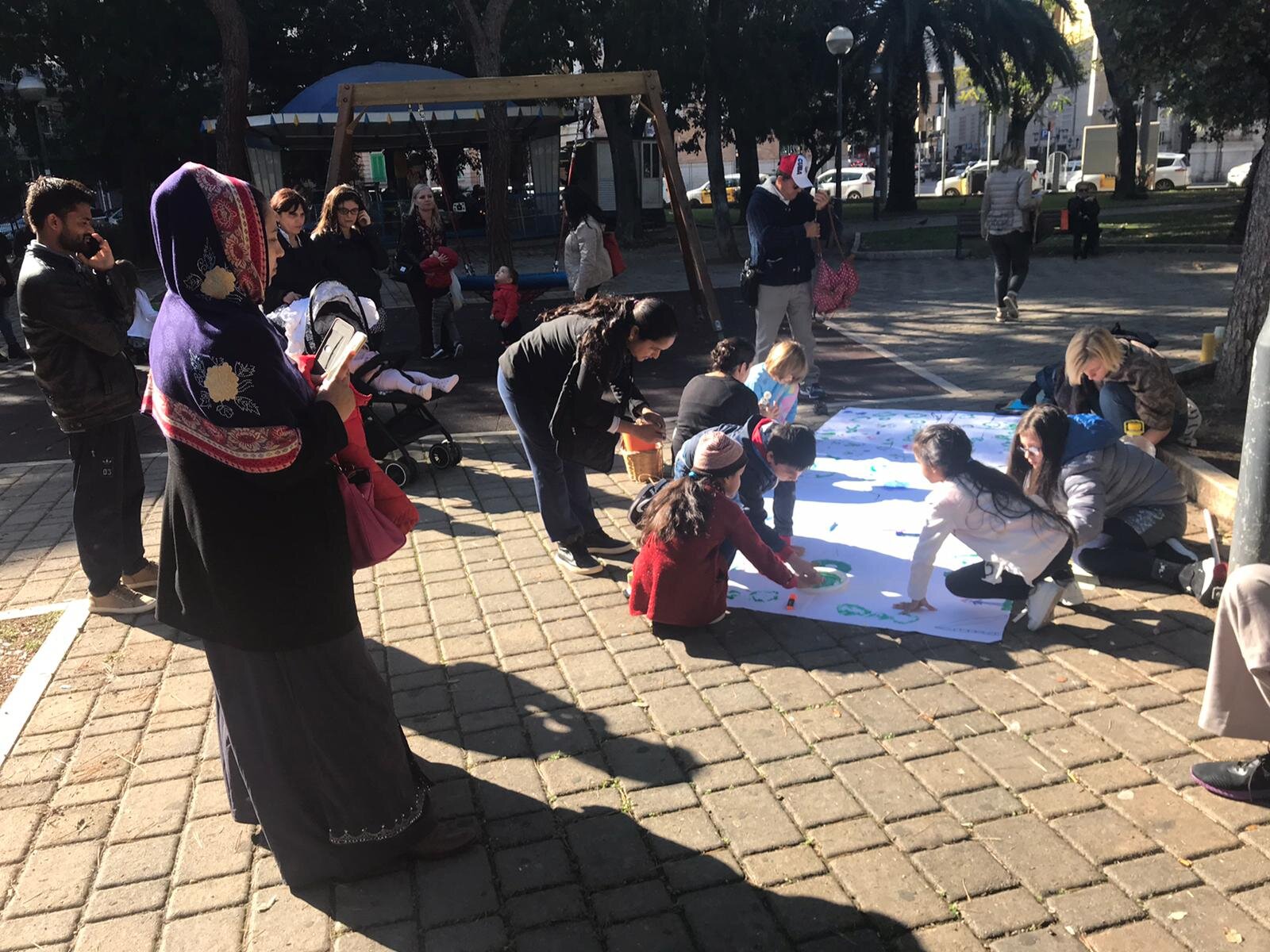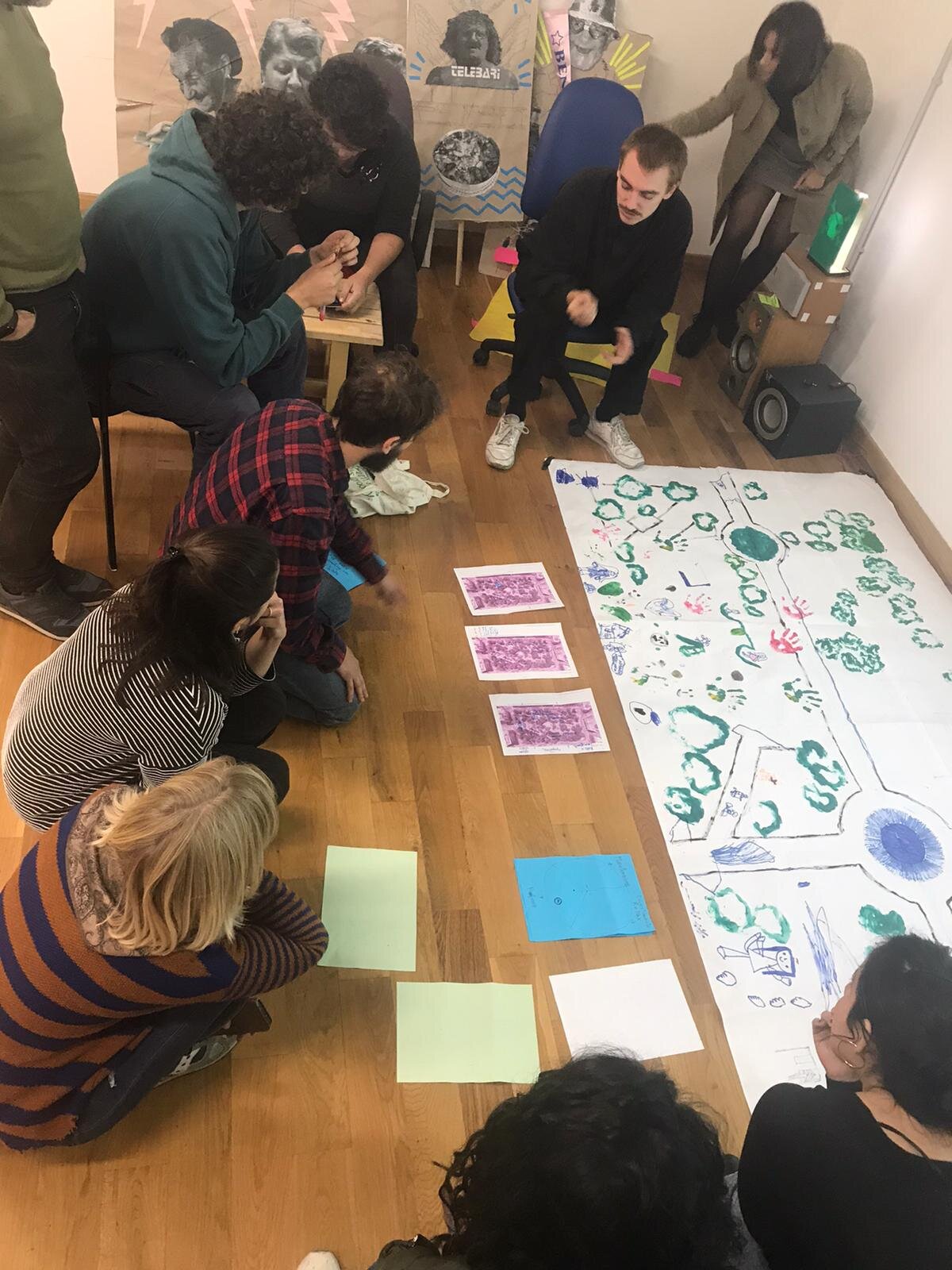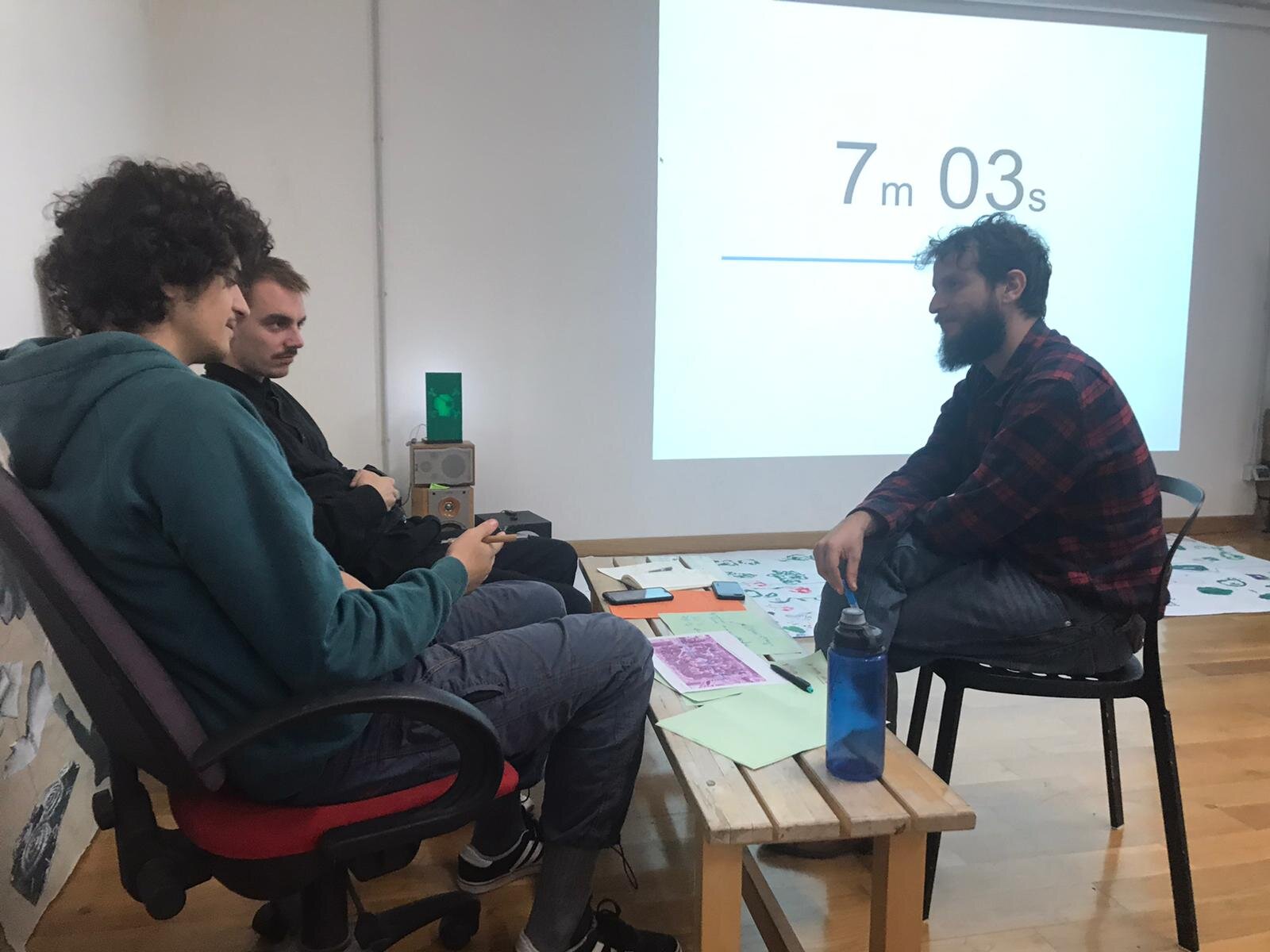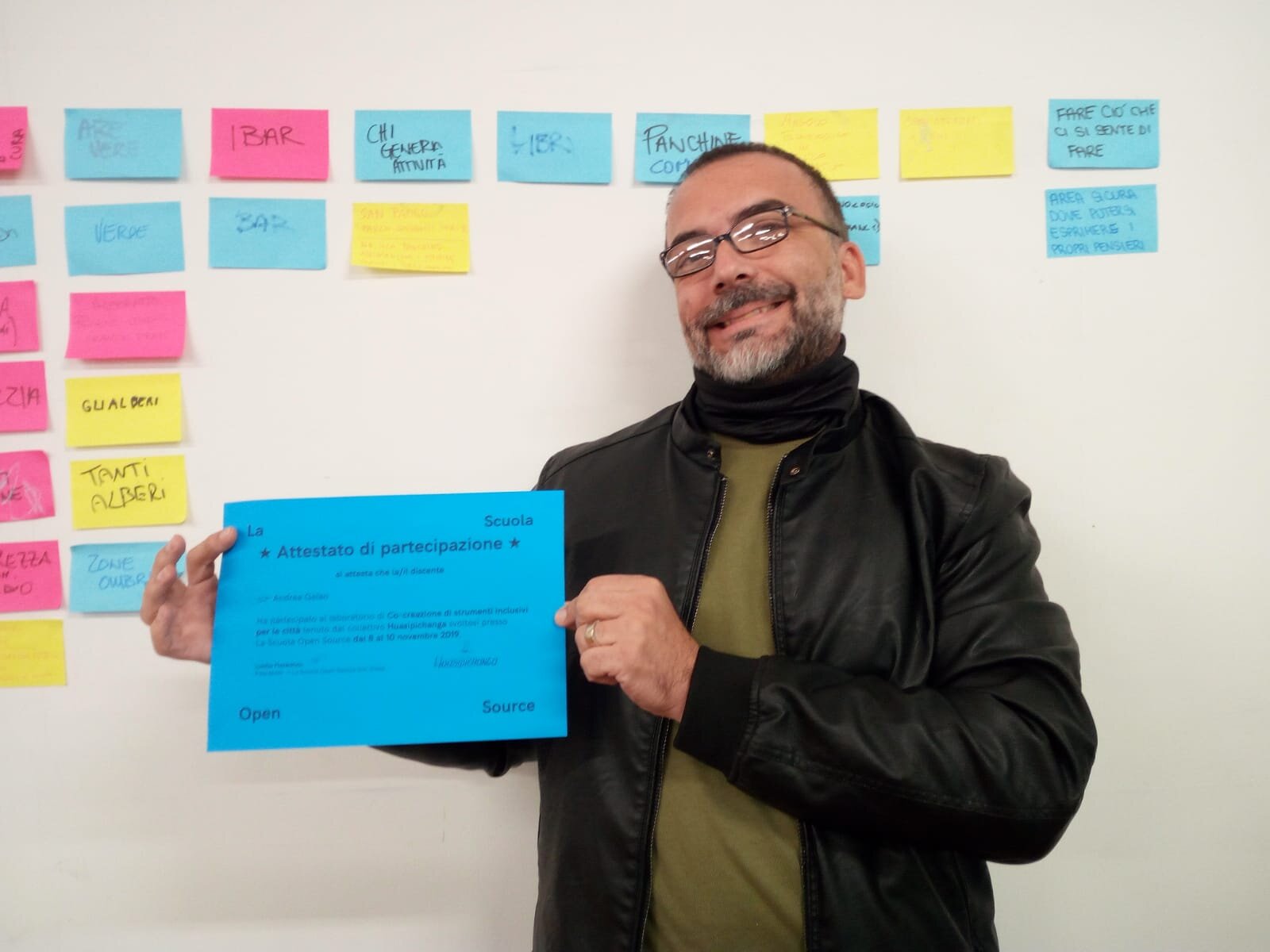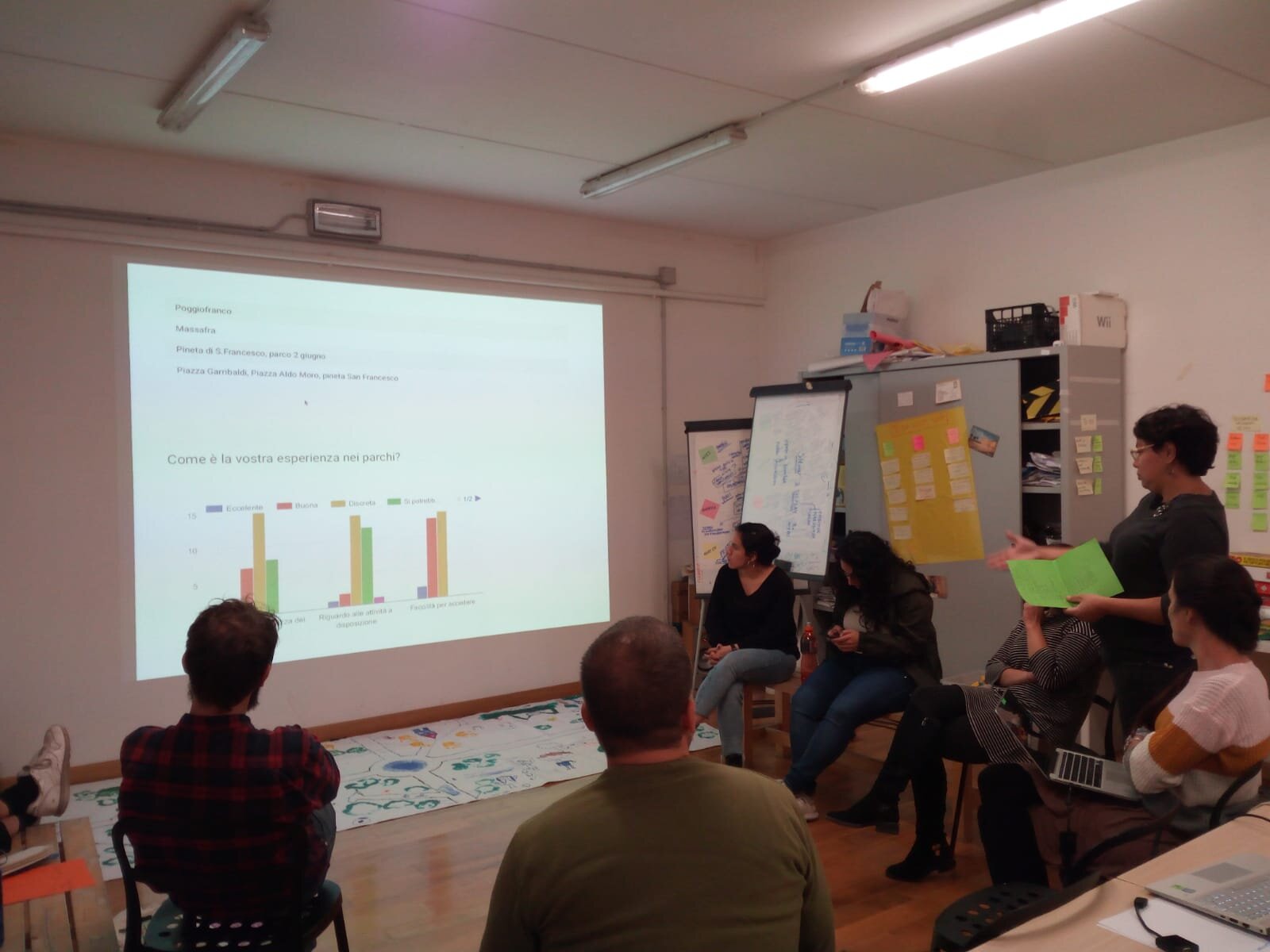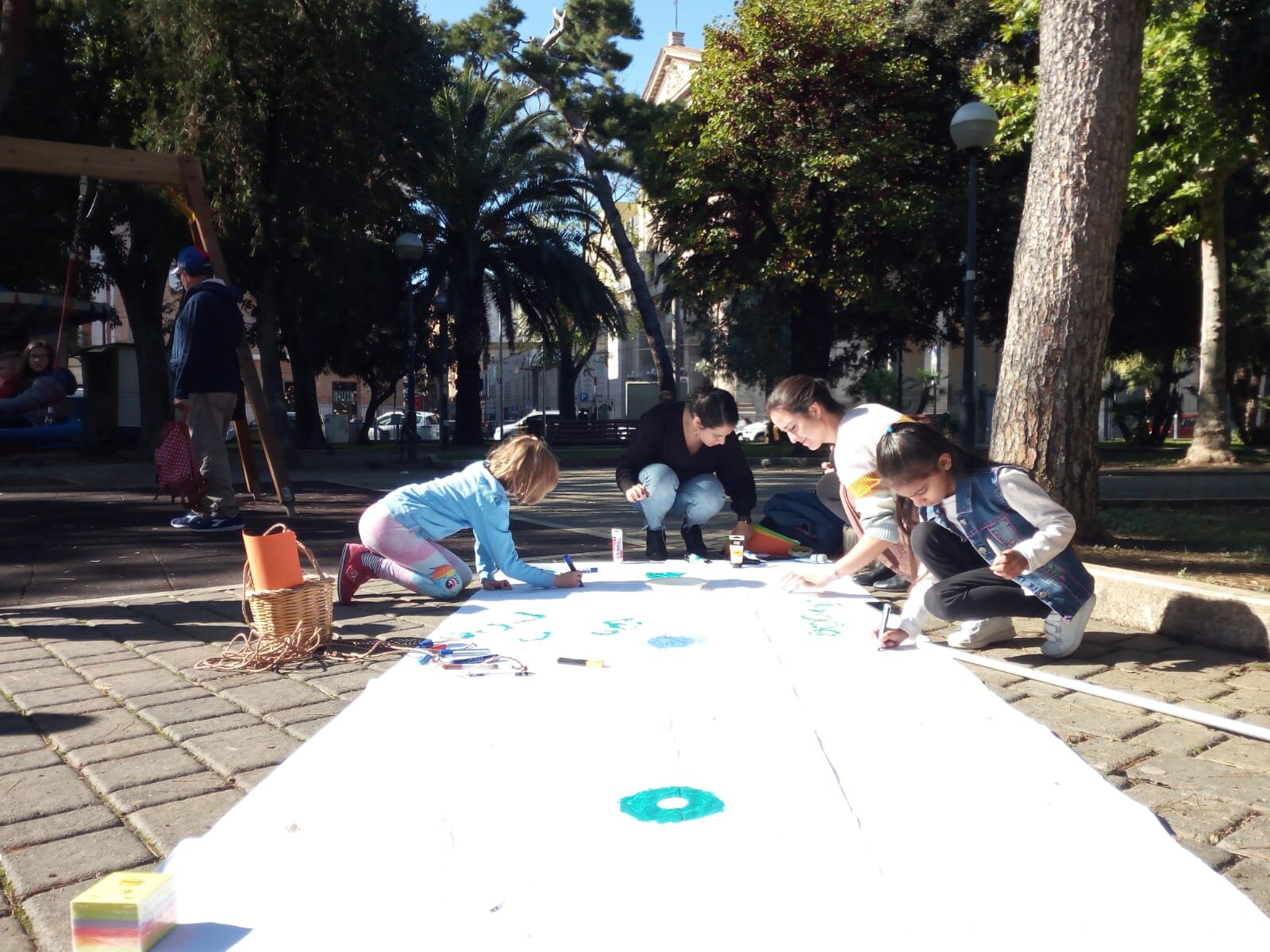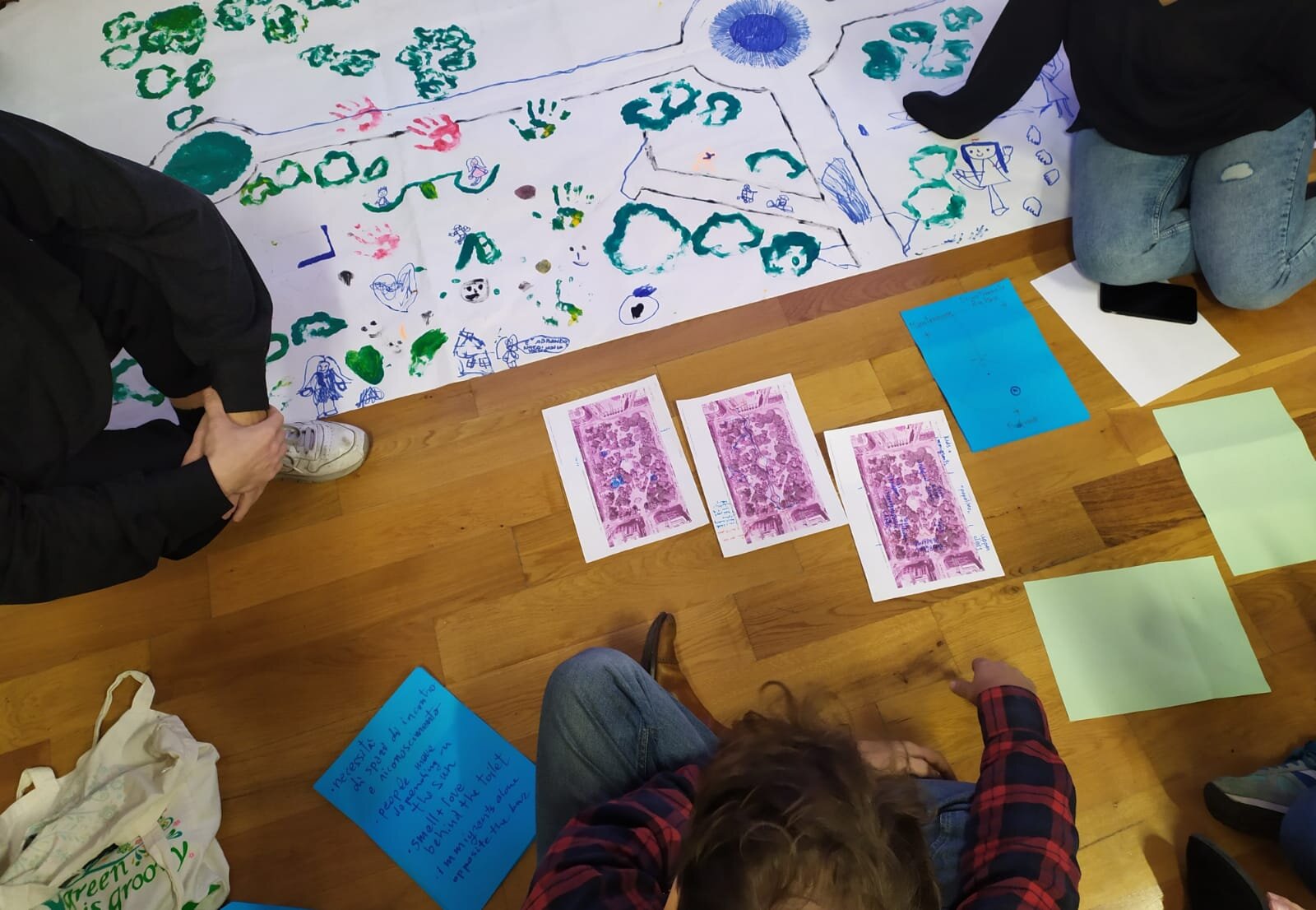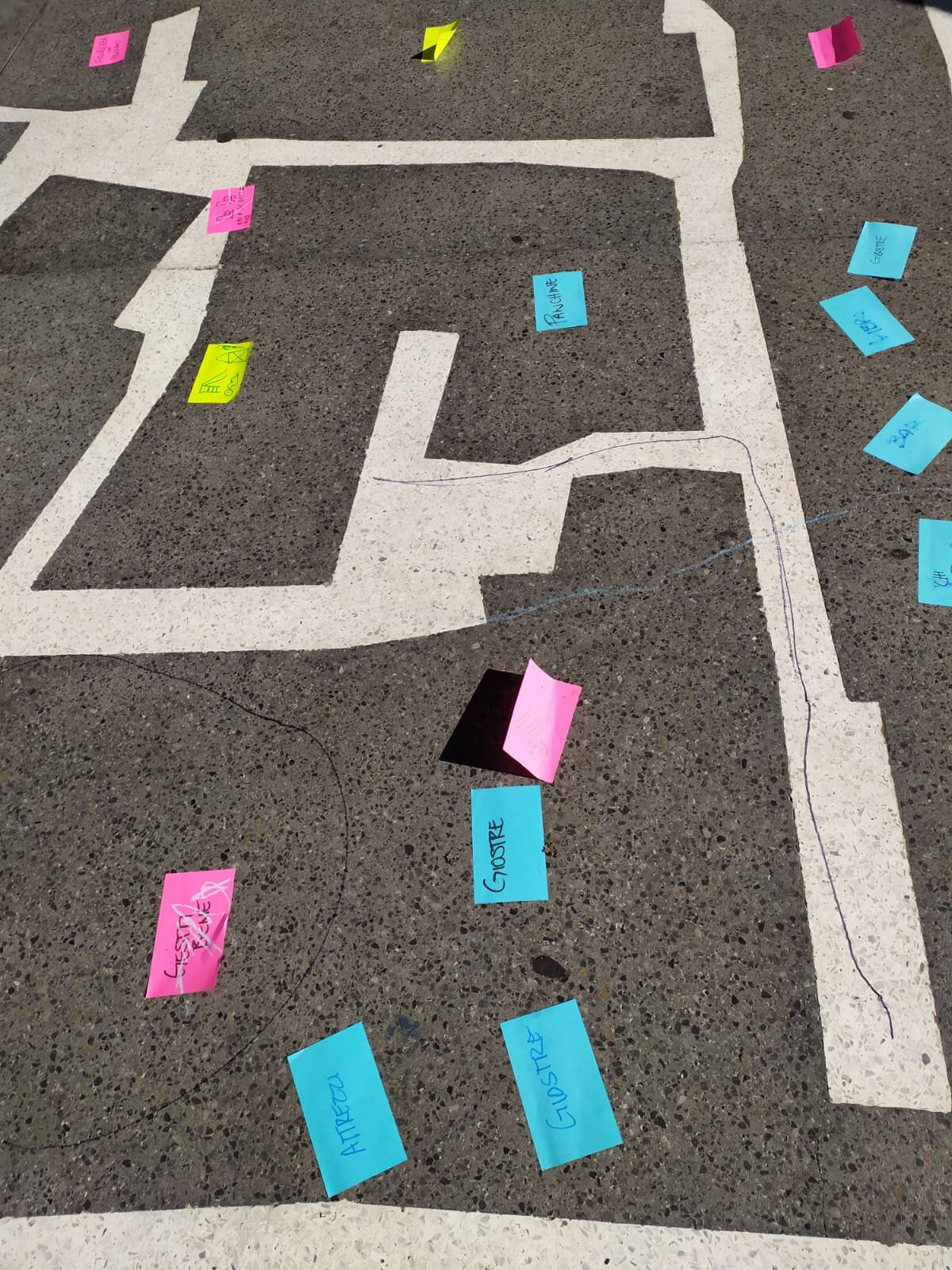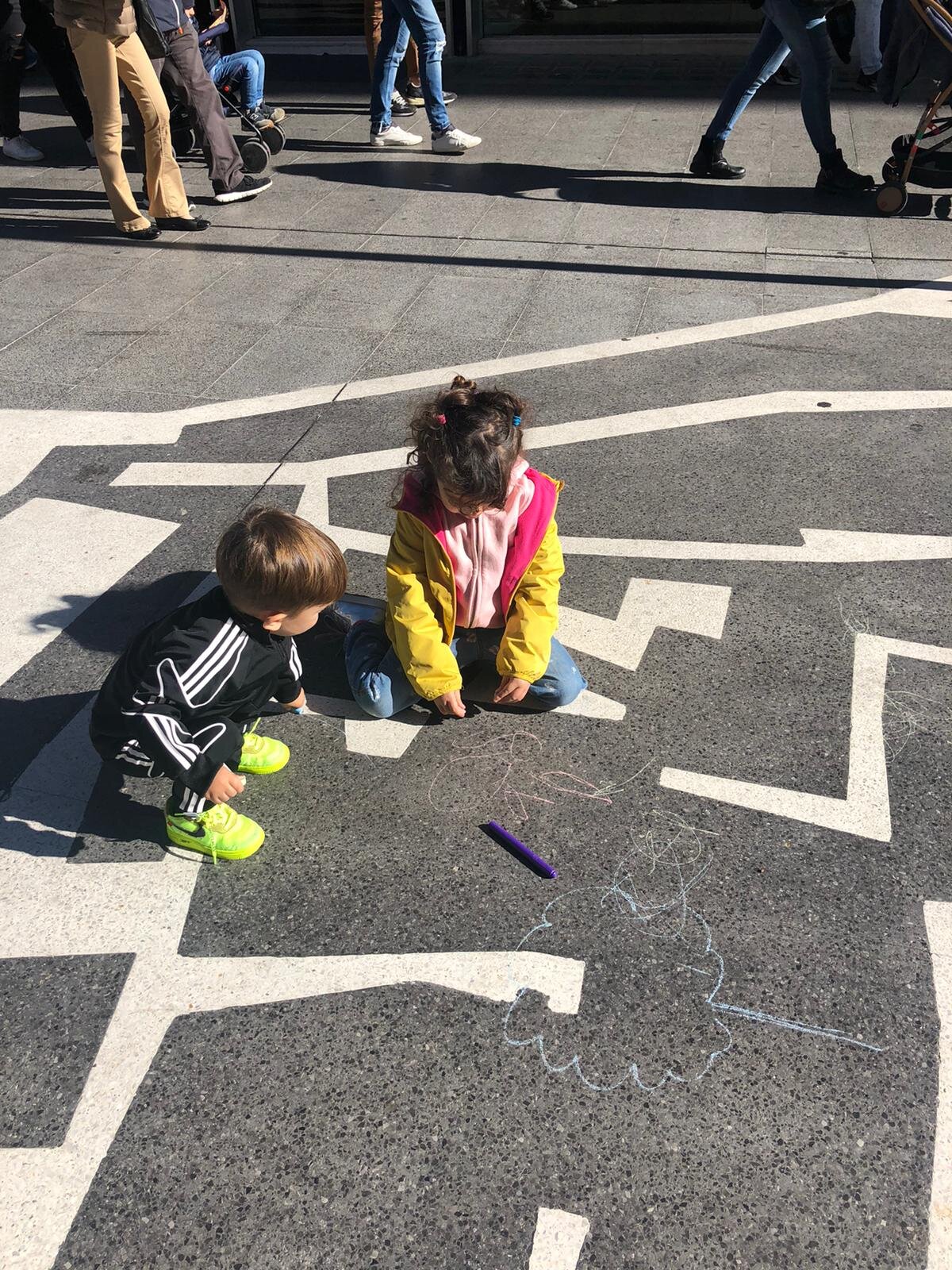Co-creation of Tools for Inclusive Cities
Human interactions are constantly taking place in physical spaces. Whether these are public or private, spaces are often (re)adapting its features to express the needs of those who are using them. In this line, public spaces can be seen as a unique canvas where culture, history, politics, economy and daily socio-intersectional issues are framed as a manifestation of collective resilience, adaptability, and resistance. Therefore, the importance of adopting a human scale and inclusive standpoint when putting into practice urban development practices for better cities. Huasipichanga and La Scuola Open Source, a space dedicated to social and technological innovation to perform educational activities, cultural performances and research projects, have joined efforts to conduct a three day full immersion workshop on inclusive cities. The aim of this workshop is for participants to understand and experience how different social actors can live cities differently to foster both awareness and the implementation of effective inclusive practices in urban development interventions.
THE WORKSHOP
Background
Audience: a total of 6 participants - architects/landscape designers, urban planning students, placemakers, city makers, and psychotherapists from Italy, Germany, and Mexico.Time: a three-day workshop, whose content is structured based on theories, data collection, and analysis-proposal.
Objectives
Sharing knowledge about the co-creation process and its application.
Development of collaborative tools to understand, map, and enhance socio-spatial issues in Bari, Italy.
METHODOLOGY
SCREENING
DAY 1:
Theories, concepts and space experienceThe first day focused on sharing theoretical content. The taught theories and concepts are:
Inclusivity
Collaborative design
Human-scale perspective and Child-friendly cities
Huasipichanga Methodology
The goal of these sessions was to inform participants about the current trends in urban planning and development from a collaborative working approach.
At the end of the first day, a walkshop around Bari was organized to discover the city and get insights into residents’ interaction with their environment from diverse and unique perspectives.
PICTURING
DAY 2:
Start with the co-creation processAfter standing on stage during most of the first day, the second day is all about the participants playing the leading role. They were asked to present their home cities and identify three challenges. The second session of the day started with a short presentation. We shared knowledge about participatory tools to map spaces for inclusive cities, used for the data collection starting that day, and concluded the following morning.
Afterward, the participants got to split into two groups to identify a particular urban-related challenge in Bari, choose an adequate co-creation process, and participatory tools that could tackle the chosen issue. As a result, mobility and identity were the challenges chosen by the participants to analyze. On this note, they developed two strategies to understand how to approach and intervene Giardino Garibaldi, located nearby La Scuola Open Source and Via Sparano da Bari e Corso Vittorio Emanuele, a pedestrian street with a map of Bari design on the ground.
ZOOMING IN
CAPTURING
REVEALING
Day 3:
Development and completion of the co-creation process to tackle urban issues in Bari.
The third day starts with an introduction about what is ethnographic research and in particular, what is the role of makers and researchers during the fieldwork phase of a project.
This theoretical insight helps the participants to intervene in the selected areas and conclude the data collection. The main tools used are interviews, playful workshops, observation, and surveys. This information was analysed and developed in a high-level proposal, presented and discussed in a collaborative group session.
The workshop concluded with an open conversation about the process, impact, and outcome evaluation of the project exercise and, of course, with a Huasipichanga celebration.
ZOOMING OUT

